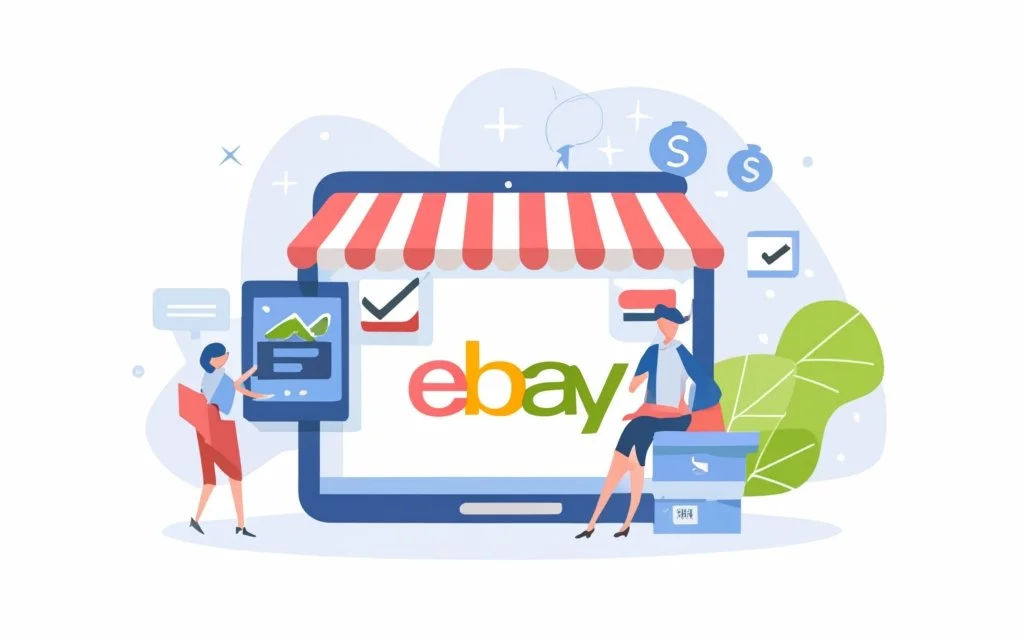“Navigating E-Commerce: Your Ultimate Guide To Success”
admin@learntoearnwithus.com2023-12-21T10:58:38+00:00Introduction
In the energetic digital era, e-commerce has become a daily need. The ability to do business over the internet, buy and sell products, has completely changed how we think about commerce .In this essay, we will look at the origins of e-commerce, as well as the top platforms, company strategies, and a lot more.
Basics of E-Commerce
Electronic commerce, or e-commerce, is the practice of purchasing and vending goods and services via the internet.
It has witnessed a remarkable evolution from its inception.Simple online transactions were its beginnings, but it has since developed into a sophisticated ecosystem with a range of services, payment options, and business models.
Historical Evolution of E-Commerce: E-commerce has come a long way from the first online sale in the 1990s to the present day, where global e-commerce sales are projected to reach trillions of dollars.
E-Commerce vs. Traditional Commerce: E-commerce differs from traditional commerce by its virtual nature, enabling businesses to reach a global audience without physical limitations.
Important E-Commerce Elements:
Understanding essential elements like a user-friendly website, secure payment methods, and effective logistics is necessary to succeed in the e-commerce industry.


E-Commerce Examples
Let’s explore some e-commerce success stories and diverse business models:
Success Stories: Companies like Amazon, Alibaba, and eBay are prime examples of successful e-commerce giants. These businesses have redefined online shopping and created a global presence.
Different Approaches to E-Commerce: E-commerce is not just for stores.It covers the many business-to-business (B2B), consumer-to-consumer (C2C), business-to-business (B2B), and business-to-consumer (B2C) models, each of which has a specific function.
E-Commerce Marketplaces
Marketplaces for online shopping give both people and companies a location to sell goods. Some key points include:
Key Players in E-Commerce Marketplaces:Every day, millions of people shop on online marketplaces like Amazon and eBay, which appeals to vendors.
Pros and Cons of Selling on E-Commerce Marketplaces: While marketplaces offer a large customer base, they may have strict rules and fees.

Niche Marketplaces: These marketplaces specialize in specific products or industries, offering opportunities for unique ventures.

Cross-Border E-Commerce
Expanding globally can be a game-changer:
Advantages and Challenges of Selling Internationally: Selling across borders opens up new markets, but it comes with logistical and regulatory challenges.
Methods for Expanding Into Global Marketplaces: Do your research and adjust your plan to the preferences and cultural norms of the target market.
E-Commerce Business Models
Explore various e-commerce business models:
Dropshipping: An e-commerce model where you sell products without holding inventory.
Traditional Retail vs. E-Tail: Compare the pros and cons of traditional retail and e-commerce.
Subscription E-Commerce: Understand the growing trend of subscription-based services.
Social Commerce: Increase e-commerce sales by using social media’s influence.
How to Begin an E-Commerce Website
Are you considering starting your own online store? Follow these steps:
Step-by-Step Guide: A comprehensive guide to walk you through the process, from idea to execution.
E-Commerce Website Design and Development: Create an attractive and user-friendly website.
SEO for E-Commerce: Boost your site’s visibility in search engines to attract more visitors.
E-Commerce Website Security: Ensure your customers’ data is safe.
E-Commerce Marketing
Digital marketing is essential for e-commerce success:
Digital Marketing Strategies: Use techniques like SEO, content marketing, social media, and email marketing to promote your business.

E-Commerce Payment and Security
Payment gateways and security are critical aspects of e-commerce:
Payment Gateways: Understand the options available and choose the right one for your business.
Ensuring Payment Security: Protect your customers’ sensitive information.

E-Commerce Customer Experience
Customer satisfaction is paramount:
Customer-Centric E-Commerce: Put your customers at the center of your business strategy.
User Experience (UX) in E-Commerce: Create a seamless and enjoyable shopping experience.
Customer Reviews and Testimonials: Build trust by showcasing positive customer feedback.
E-Commerce Fulfillment and Logistics
Efficient order fulfillment and logistics are vital for e-commerce success:
Order Fulfillment Methods: Choose the most suitable method for your business.
E-Commerce Shipping and Delivery: Ensure timely delivery to keep customers satisfied.
Handling Returns and Refunds: Have clear policies for dealing with returns and refunds.
E-Commerce Analytics
Leverage data for growth:
Key Metrics for E-Commerce Success: Track important metrics to make informed decisions.
Using Analytics Tools: Use tools and software to analyze your e-commerce data effectively.
E-Commerce Trends and Future
Stay ahead of the curve:
Emerging Trends in E-Commerce: Explore current trends like voice commerce and augmented reality.
The Role of Technology: Understand how technology continues to shape the e-commerce landscape.
E-commerce and Sustainability: Discover how sustainability is influencing e-commerce more and more.

E-Commerce Business Ideas
Looking for innovative e-commerce business ideas? We’ve got you covered:
Unique E-Commerce Business Ideas: Discover creative concepts to stand out in the market.
Identifying Niche Markets and Opportunities: How to spot untapped niches with potential.
The Art of E-Commerce Innovation: Stay ahead of the competition through innovation.
How to Pick Your Company’s Best E-Commerce Platform
One of the most crucial decisions you will make while launching and running a successful e-commerce business is choosing the right e-commerce platform. The total functionality, adaptability, and usefulness of your online store will be greatly impacted by your choice.
In order to help you choose, we will examine some of the best e-commerce platforms available in this post and provide selection criteria.
Top E-Commerce Platforms
- Shopify (Shopify.com): Shopify is a household name in the e-commerce world.It is highly renowned for having a user-friendly interface and a ton of built-in features that make it a fantastic choice for businesses of all sizes. With various themes and plugins available, you can customize your store to fit your brand’s unique identity. Shopify also offers a seamless payment processing system and robust customer support.
- WooCommerce (WooCommerce.com): If you currently have a WordPress website, WooCommerce is an excellent solution.You may turn your WordPress website into a feature-rich online store by using an open-source plugin. Due to its high level of customisation, WooCommerce is a popular option for businesses who want more flexibility and control over their online presence.
- BigCommerce (BigCommerce.com):
BigCommerce is a powerful e-commerce platform that can grow with your company.
It contains a number of features that are suitable for both small enterprises and large corporations.
- BigCommerce is a good alternative for companies wishing to expand swiftly and effectively since it has integrated SEO capabilities, multi-channel selling opportunities, and a range of template options.
Lastly, when you start your e-commerce adventure, don’t forget to visit helpful sites like LearnToEarnWithUs.com, where you can acquire more advice, pointers, and strategies to help you succeed in the ever changing online business market.
Good luck with your e-commerce venture!
Frequently Asked Questions (FAQs)
- B2C (business-to-consumer)
- B2B (business-to-business),
- C2C (consumer-to-consumer) e-commerce are the three primary forms.
Online purchasing and selling of goods and services is known as e-commerce. Convenience, worldwide access, and a multitude of business options make it beneficial.
Online shopping is only one of the many activities that are included in e-commerce. Online shopping is a subset of e-commerce and specifically refers to the purchase of goods through the internet.
Questions related to online selling can include those about marketing strategies, payment processing, order fulfillment, and customer service.
E-commerce is special because it can operate beyond national borders, connect with customers anywhere in the world, and provide a variety of business options and business models.
Summurization
The world of e-commerce is dynamic and full of opportunities. Understanding its basics, choosing the right platform, and staying updated with current trends are essential for success.
Regardless of experience level, there is plenty of space for development in this fascinating sector for e-commerce business owners.
Discover E-Commerce courses at http://www.learntoearnwithus.com to boost your online business skills. From marketing to logistics, our services empower you to succeed in the digital marketplace. Stay with us for expert guidance and resources.








Leave a Reply